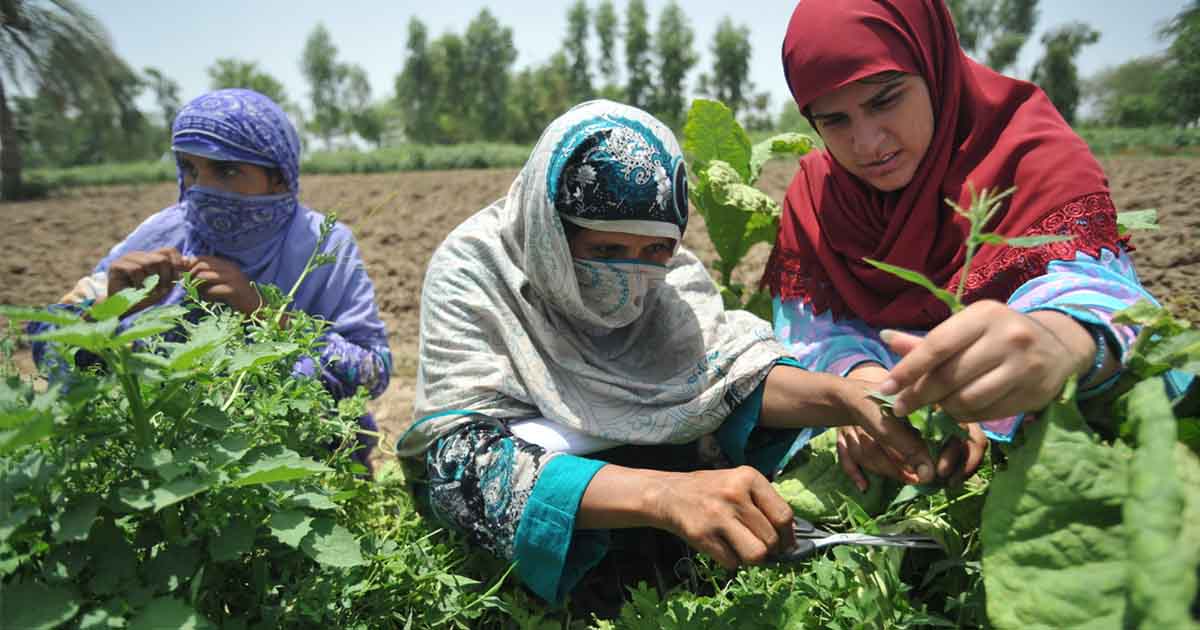Women have become potent change agents in a world where climate resilience is urgently needed. Gender-responsive climate action is now of utmost importance as we manage the daunting difficulties posed by climate change. Drawing inspiration from the invaluable lessons provided by Canada’s leadership in this area, Pakistan is at the forefront of acknowledging the crucial role women play in creating a sustainable future.
The recent meeting convened by Senator Sherry Rehman, Pakistan’s Federal Minister for Climate Change and Environmental Coordination, brought attention to the essential role that women’s viewpoints play in addressing the many-faceted problem of climate change. The need to strengthen climate resilience has never been more urgent than it is now as Pakistan deals with an increasing number of climate-related problems, including extreme weather, fast glacier thawing, and impending water scarcity. A demand for diversity and inclusion is at the center of this endeavor, and women’s voices have the potential to help shape comprehensive answers. Pakistan has made great progress in utilizing women’s potential as powerful agents of climatic resilience, and they have been inspired by Canada’s example-setting lessons.
Women have a critical role in efforts to build climate resilience because they are disproportionately impacted by the effects of climate change. The ‘Glaciers & Students’ initiative, which focuses on glacier mapping, weather system installation, and capacity-building for students and staff, has received praise from Minister Rehman for its admirable work. It is crucial to emphasize women’s participation in such projects since they frequently suffer the most from climate-related calamities and have a crucial role in caring for and managing natural resources, especially in rural regions.
This is a deliberate step towards effective climate resilience, not just an issue of gender equality. According to several research, gender-responsive climate policies result in more workable and long-lasting solutions. Applying women’s specialized knowledge and experience can foster community resilience by fostering new perspectives on how to tackle local climate concerns.
While the effects of climate change worsen existing gender gaps, they also open up new opportunities for women’s empowerment. Pakistan can maximize the potential of women as change agents and pioneers in sustainable development by including them in efforts to adapt to and mitigate climate change.
However, this empowerment is not a stand-alone project. Understanding women’s complex needs and views is fundamental to crafting climate policies that are suited to the complex problems faced by different communities. Through inclusive climate education and awareness initiatives, women could be trained to skillfully discuss evolving environmental dynamics, becoming active contributors to climate resilience rather than merely passive recipients.
The admirable dedication of Pakistan to protecting natural ecosystems, as demonstrated by initiatives like the Khunjerab National Park, reveals a forward-thinking attitude toward environmental preservation. To ensure that their views are heard and their needs are met, it is crucial that women’s perspectives be critically included into these initiatives.
International cooperation is essential as Pakistan deals with the rising effects of climate change. A keystone is Canada’s commitment to the Green Climate Fund (GCF), the largest fund in the world created to carry out the goals of the Paris Agreement. Canada’s steadfast dedication to supporting climate-resilient efforts in vulnerable countries is highlighted by a $450 million pledge. Notably, a sizeable percentage of this funding commitment is designated for initiatives that target women and disadvantaged populations and exhibit gender responsiveness.
Beyond merely financial assistance, Canada’s path has an impact. Their commitment to comprehensive solutions is furthered by their focus to addressing social injustices and embracing gender-specific concerns into climate initiatives. The world looks to Canada as a role model because of its relentless determination to promote women as agents of sustainable development.
In spite of Canada’s impressive advancements in gender-responsive climate action, there is undoubtedly still more ground to cover. The need for coordinated, international action to combat climate change is urgent, and women’s opinions are crucial to this effort. The momentum for inclusive climate solutions is kept strong by Canada’s continued leadership in international climate forums through cross-country cooperation, information sharing, and lobbying for gender-responsive policy.
Pakistan is on a comprehensive path to achieving climate resilience. It is contingent upon including the opinions of women, an idea highlighted by Canada’s transformational initiatives. Resilience is built on three pillars: inclusive climate education, gender-responsive policy, and women’s active participation in climate efforts. The empowerment of women as change-makers and leaders strengthens Pakistan’s ability to adapt to climate change while also achieving gender equality and sustainable development. It is a common route, one that calls for cooperation across nations in honor of the distinctive contributions made by women, and one that holds up the prospect of a resilient, just future for all in the face of climate change.
By Daniela Lopez, Editor















